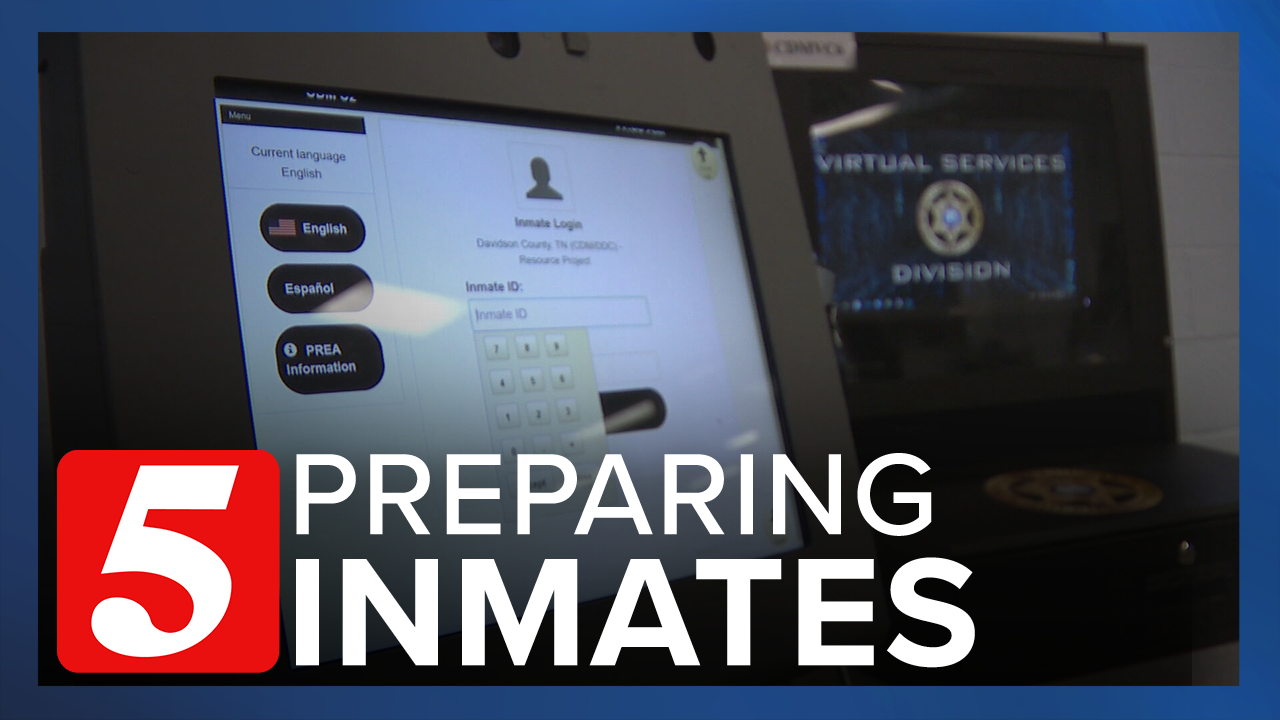NASHVILLE, Tenn. (WTVF) — People are released from jail every day without a job, an education or a place to live. Now, a new software in Davidson County's jails is helping inmates be more prepared.
A software developer at Tyler Technologies in Brentwood created the program, which is compatible with kiosks and tablets given to inmates in jail. It's connecting them with social care providers in behavioral health treatment, GED programs, housing and job opportunities.
"They can physically walk up to the kiosk, apply, have communication, schedule video interviews and have those needs waiting for them upon release," said Silas Deane III.
Silas Deane III visited 50 jails after he graduated from college. In most, he noticed there wasn't infrastructure in place to help inmates plan their re-entry into society.
"Many facilities that I visited would simply have — if they had anything at all — a handwritten list that stated these are a couple of organizations that might provide employment, transitional homes," said Silas Deane III.
All 1,835 inmates in the custody of the Davidson County Sheriff's Office now have access to the program called Community Readiness. It is available on kiosks inside the various correctional facilities.
For years, the sheriff's office has been helping inmates make a re-entry plan. This software gets the resources and their community partners in front of more inmates.
"When people come to jail, they're not usually in the best shape, so when we open the doors of the jail for release, we really want them prepared to re-enter society and be productive," said Paul Mulloy, programs director at the Davidson County Sheriff's Office.
The software is available in more than 30 jails across the southeast. It will be available in 500 jails just a few years from now.
The software developer sees this as helping more than just today's inmates.
"We're trying to simply provide these individuals an opportunity for a future, for not only themselves, but also for generations to come behind them," said Deane.
Mulloy said if re-entry wasn't a focus, more incarcerated people would re-offend.
"We see it with some of the clients that don't want to participate in the programming. They come back sooner than the ones who are actively participating and placed with community partners around release. It's a stark difference," said Mulloy.





